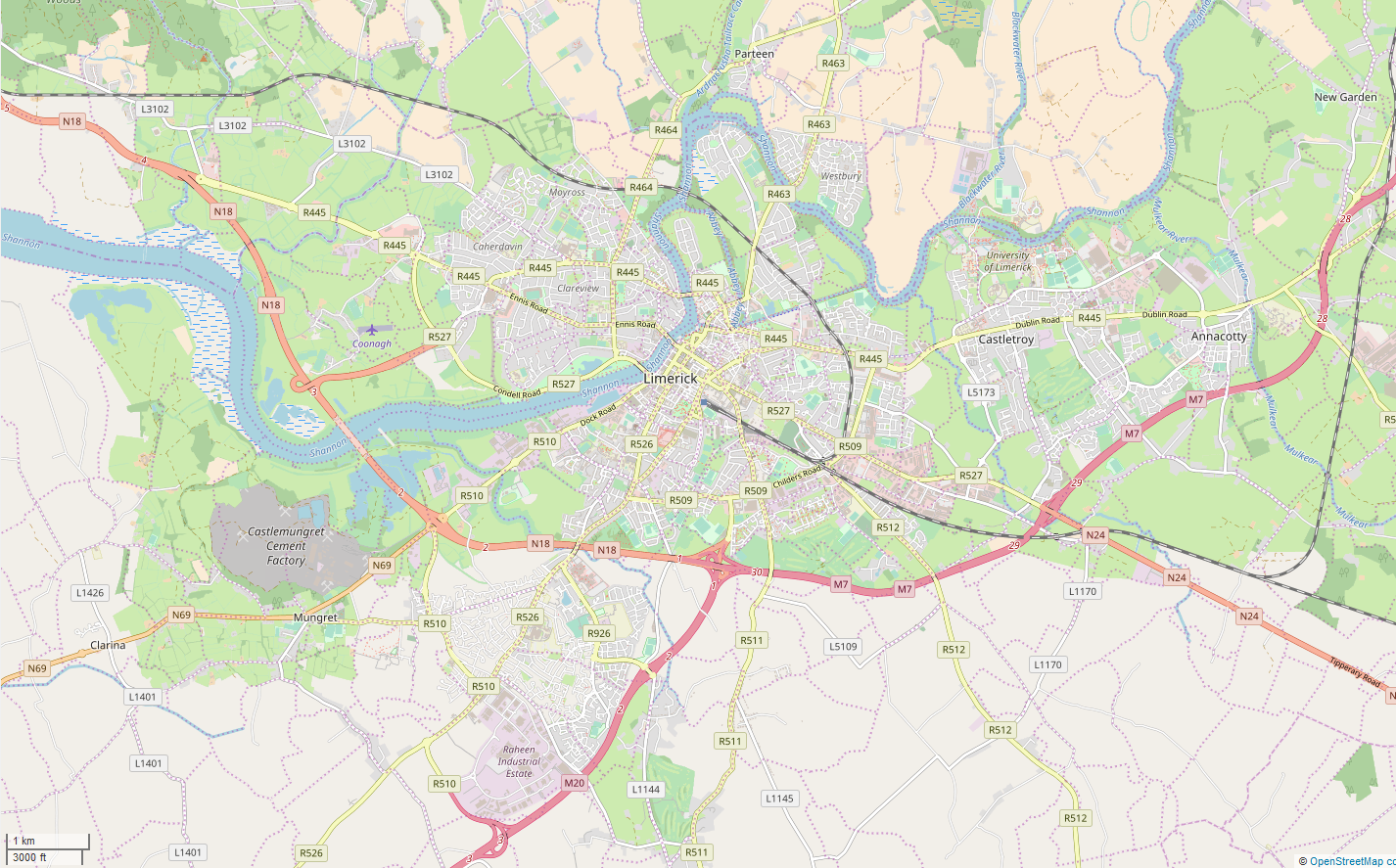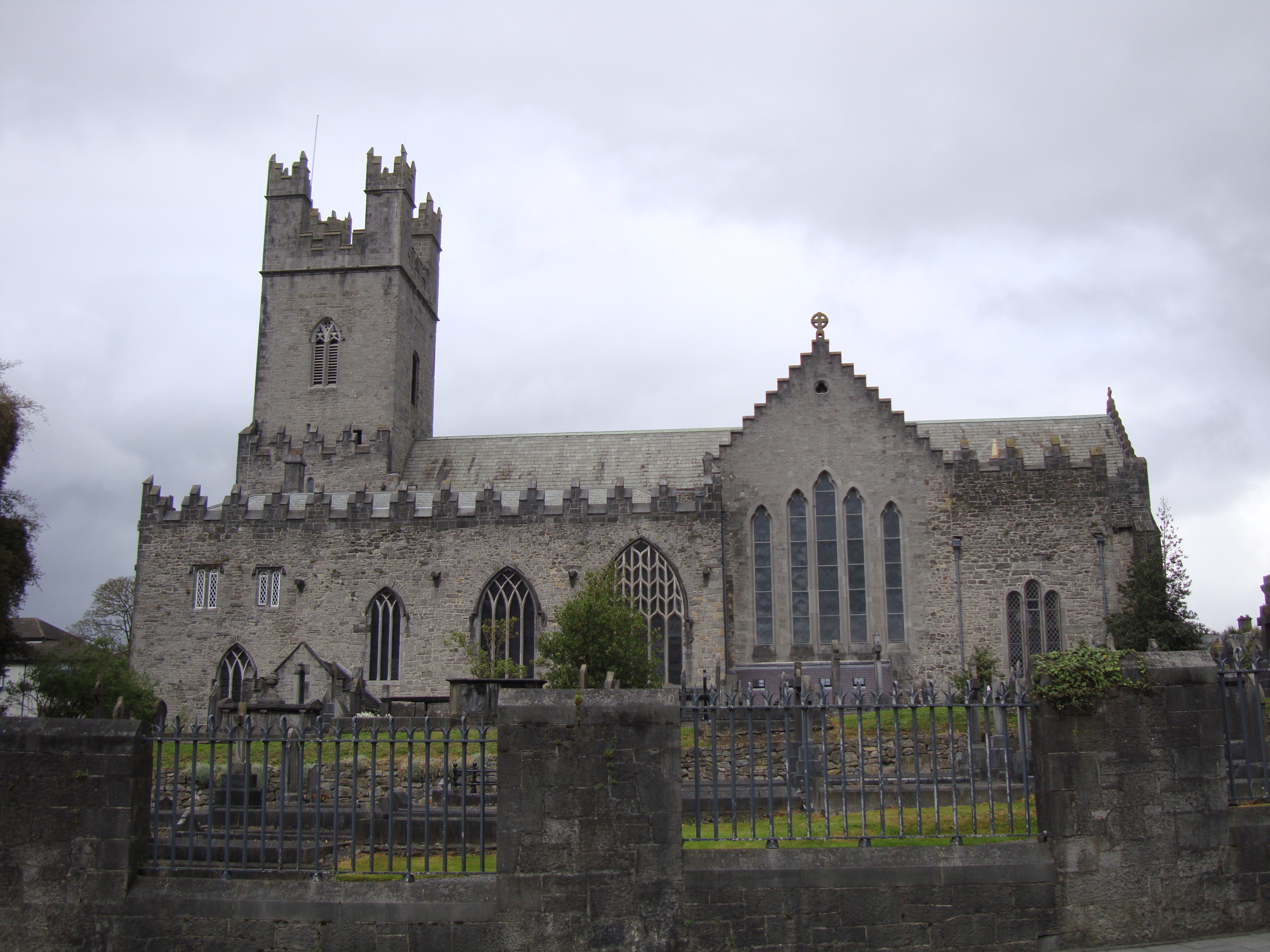|
Patrick O'Neill (bishop)
Patrick O'Neill (b Fedamore 8 February 1891; d Limerick 26 March 1958) was an Irish Roman Catholic Bishop. Early life and education Patrick O'Neill was born at Grange, Fedamore, Co Limerick to John and Mary O’Neill and was educated at St Munchin's College before proceeding to St. Patrick’s College, Maynooth St Patrick's Pontifical University, Maynooth (), is a pontifical Catholic university in the town of Maynooth near Dublin, Ireland. The college and national seminary on its grounds are often referred to as Maynooth College. The college was of ... for his studies for the priesthood. He was ordained priest in June 1915 and remained in Maynooth to prepare for a Doctorate in Divinity. References 1891 births Bishops of Limerick People educated at St Munchin's College 1958 deaths 20th-century Roman Catholic bishops in Ireland Alumni of St Patrick's College, Maynooth Academics of St Patrick's College, Maynooth Christian clergy from County Limerick [...More Info...] [...Related Items...] OR: [Wikipedia] [Google] [Baidu] |
Fedamore
Fedamore () is a small village in County Limerick, Ireland. As of the 2016 census, Fedamore had a population of 329 people. It is also a civil parish in the ancient barony of Smallcounty. - civil parish of Fedamore. Location Fedamore is in east County Limerick south of the centre of . Nearby villages include Crecora, Manister, Croom, Ballyneety and Meanus. The village is just off the[...More Info...] [...Related Items...] OR: [Wikipedia] [Google] [Baidu] |
Limerick
Limerick ( ; ) is a city in western Ireland, in County Limerick. It is in the Provinces of Ireland, province of Munster and is in the Mid-West Region, Ireland, Mid-West which comprises part of the Southern Region, Ireland, Southern Region. With a population of 102,287 at the 2022 census of Ireland, 2022 census, Limerick is the List of urban areas in the Republic of Ireland, third-most populous urban area in Republic of Ireland, Ireland, and the List of settlements on the island of Ireland by population, fourth-most populous city on the island of Ireland. It was founded by Scandinavian settlers in 812, during the Viking Age. The city straddles the River Shannon, with the historic core of the city located on King's Island, Limerick, King's Island, which is bounded by the Shannon and Abbey River, Limerick, Abbey Rivers. Limerick is at the head of the Shannon Estuary, where the river widens before it flows into the Atlantic Ocean. Limerick City and County Council is the Local gov ... [...More Info...] [...Related Items...] OR: [Wikipedia] [Google] [Baidu] |
St Munchin's College
St. Munchin's College is a boys–only Roman Catholic secondary school in Limerick, Ireland. It was founded by The Most Reverend John G. Young (bishop), John Young, Bishop of Limerick in 1796. As of January 2020, a total of 657 boys were enrolled at St. Munchin's College. The current principal of the school is Mr. David Quilter who is supported by 49 teachers. History Establishment In 1796, St. Munchin's College was established by The Most Reverend John G. Young (bishop), John Young, Bishop of Limerick who was the prominent advocate for a new school to be established in Limerick. The school formally opened on 29 September 1796 at Palmerstown within Limerick. Initially, the school curriculum consisted mainly of logic and divinity, and it was considered a prominent seminary for students wishing to study priesthood. In the years which followed, St. Munchin's College began to take the form of a Diocesan College where both laymen and prospective priests were able to pursue their st ... [...More Info...] [...Related Items...] OR: [Wikipedia] [Google] [Baidu] |
David Keane (bishop)
David Keane (b. Ballyagran 27 February 1871; d. Limerick 13 March 1945) was an Irish Roman Catholic bishop in the 20th century. Keane was educated at St Colman's College, Fermoy, and St Patrick's College, Maynooth. He was ordained priest on 23 June 1895. After a curacy in Jersey he joined the staff of St Munchin's College. He was parish priest of Glin, County Limerick, from 1919 until his appointment as Bishop of Limerick. He was consecrated on 2 March 1924 and died in post. The ''Limerick Leader The ''Limerick Leader'' is a weekly local newspaper in Limerick, Ireland. It was founded in 1889. The newspaper is headquartered on Glentworth Street in the City. The broadsheet paper currently is distributed in three editions, City, County an ...'' wrote"A great bishop passes - Death of Most Rev. Dr. Keane - Eminent and saintly spiritual ruler" Keane is buried in the north transept at St John's Cathedral. References 1871 births 1945 deaths 20th-century Roman C ... [...More Info...] [...Related Items...] OR: [Wikipedia] [Google] [Baidu] |
Bishop Of Limerick
The Bishop of Limerick is an Episcopal polity, episcopal title which takes its name after the city of Limerick in the Province of Munster, Republic of Ireland, Ireland. In the Roman Catholic Church, Catholic Church it still continues as a separate title, but in the Church of Ireland it has been united with other bishoprics. History The diocese of Limerick is one of the twenty-four dioceses established at the Synod of Rathbreasail in 1111. After the Reformation in Ireland, Reformation, there are parallel apostolic successions: one of the Church of Ireland and the other of the Roman Catholic Church. In the Church of Ireland, Limerick continued as a separate title until 1661 when it was combined with Bishop of Ardfert and Aghadoe, Ardfert and Aghadoe to form the united Bishop of Limerick, Ardfert and Aghadoe, bishopric of Limerick, Ardfert and Aghadoe. Since 1976, the Church of Ireland see has been part of the united Bishop of Limerick and Killaloe, bishopric of Limerick and Kill ... [...More Info...] [...Related Items...] OR: [Wikipedia] [Google] [Baidu] |
Henry Murphy (bishop)
Henry Murphy (19 May 1912, in Ardpatrick – 8 October 1973, in Limerick) was an Irish Roman Catholic bishop. Murphy was educated at St Munchin's College and St Patrick's College, Maynooth. He was ordained priest on 21 June 1936. He received the degree of Doctor of Divinity (DD). He was on the staff at St Munchin's from 1938 until his consecration as Bishop of Limerick The Bishop of Limerick is an Episcopal polity, episcopal title which takes its name after the city of Limerick in the Province of Munster, Republic of Ireland, Ireland. In the Roman Catholic Church, Catholic Church it still continues as a sepa ... on 31 August 1958. He served as Secretary of the Irish Episcopal Conference, and he attended all the sessions of the Second Vatican Council. He died in post. He is buried in Mount Lawrence Cemetery, Limerick. References 1912 births Bishops of Limerick 1973 deaths 20th-century Roman Catholic bishops in Ireland Alumni of St Patrick's College, Mayn ... [...More Info...] [...Related Items...] OR: [Wikipedia] [Google] [Baidu] |
1891 Births
Events January * January 1 ** A strike of 500 Hungarian steel workers occurs; 3,000 men are out of work as a consequence. **Germany takes formal possession of its new African territories. * January 4 – The Earl of Zetland issues a declaration regarding the famine in the western counties of Ireland. * January 5 **The Australian shearers' strike, that leads indirectly to the foundation of the Australian Labor Party, begins. **A fight between the United States and Lakotas breaks out near Pine Ridge agency. **A fight between railway strikers and police breaks out at Motherwell, Scotland. * January 7 ** General Miles' forces surround the Lakota in the Pine Ridge Reservation. ** The Inter-American Monetary Commission meets in Washington DC. * January 9 – The great shoe strike in Rochester, New York is called off. * January 10 – in France, the Irish Nationalist leaders hold a conference at Boulogne. The French government promptly takes loan. * Jan ... [...More Info...] [...Related Items...] OR: [Wikipedia] [Google] [Baidu] |
Bishops Of Limerick
A bishop is an ordained member of the clergy who is entrusted with a position of Episcopal polity, authority and oversight in a religious institution. In Christianity, bishops are normally responsible for the governance and administration of dioceses. The role or office of the bishop is called episcopacy or the episcopate. Organisationally, several Christian denominations utilise ecclesiastical structures that call for the position of bishops, while other denominations have dispensed with this office, seeing it as a symbol of power. Bishops have also exercised political authority within their dioceses. Traditionally, bishops claim apostolic succession, a direct historical lineage dating back to the original Twelve Apostles or Saint Paul. The bishops are by doctrine understood as those who possess the full Priest#Christianity, priesthood given by Jesus in Christianity, Jesus Christ, and therefore may ordain other clergy, including other bishops. A person ordained as a deacon, pri ... [...More Info...] [...Related Items...] OR: [Wikipedia] [Google] [Baidu] |
People Educated At St Munchin's College
The term "the people" refers to the public or common mass of people of a polity. As such it is a concept of human rights law, international law as well as constitutional law, particularly used for claims of popular sovereignty. In contrast, a people is any plurality of persons considered as a whole. Used in politics and law, the term "a people" refers to the collective or community of an ethnic group or nation. Concepts Legal Chapter One, Article One of the Charter of the United Nations states that "peoples" have the right to self-determination. Though the mere status as peoples and the right to self-determination, as for example in the case of Indigenous peoples (''peoples'', as in all groups of indigenous people, not merely all indigenous persons as in ''indigenous people''), does not automatically provide for independent sovereignty and therefore secession. Indeed, judge Ivor Jennings identified the inherent problems in the right of "peoples" to self-determination, as i ... [...More Info...] [...Related Items...] OR: [Wikipedia] [Google] [Baidu] |
1958 Deaths
Events January * January 1 – The European Economic Community (EEC) comes into being. * January 3 – The West Indies Federation is formed. * January 4 ** Edmund Hillary's Commonwealth Trans-Antarctic Expedition completes the third overland journey to the South Pole, the first to use powered vehicles. ** Sputnik 1 (launched on October 4, 1957) falls towards Earth from its orbit and burns up. * January 13 – Battle of Edchera: The Moroccan Army of Liberation ambushes a Spanish patrol. * January 27 – A Soviet-American executive agreement on cultural, educational and scientific exchanges, also known as the "Lacy-Zarubin Agreement, Lacy–Zarubin Agreement", is signed in Washington, D.C. February * February 1 – Egypt and Syria unite to form the United Arab Republic. * February 2 – The ''Falcons'' aerobatic team of the Pakistan Air Force led by Wg Cdr Zafar Masud (air commodore), Mitty Masud set a World record loop, world record performing a 16 aircraft diamon ... [...More Info...] [...Related Items...] OR: [Wikipedia] [Google] [Baidu] |
Alumni Of St Patrick's College, Maynooth
Alumni (: alumnus () or alumna ()) are former students or graduates of a school, college, or university. The feminine plural alumnae is sometimes used for groups of women, and alums (: alum) or alumns (: alumn) as gender-neutral alternatives. The word comes from Latin, meaning nurslings, pupils or foster children, derived from "to nourish". The term is not synonymous with "graduates": people can be alumni without graduating, e.g. Burt Reynolds was an alumnus of Florida State University but did not graduate. The term is sometimes used to refer to former employees, former members of an organization, former contributors, or former inmates. Etymology The Latin noun means "foster son" or "pupil". It is derived from the Latin verb "to nourish". Separate, but from the same root, is the adjective "nourishing", found in the phrase '' alma mater'', a title for a person's home university. Usage in Roman law In Latin, is a legal term (Roman law) to describe a child placed in foster ... [...More Info...] [...Related Items...] OR: [Wikipedia] [Google] [Baidu] |






